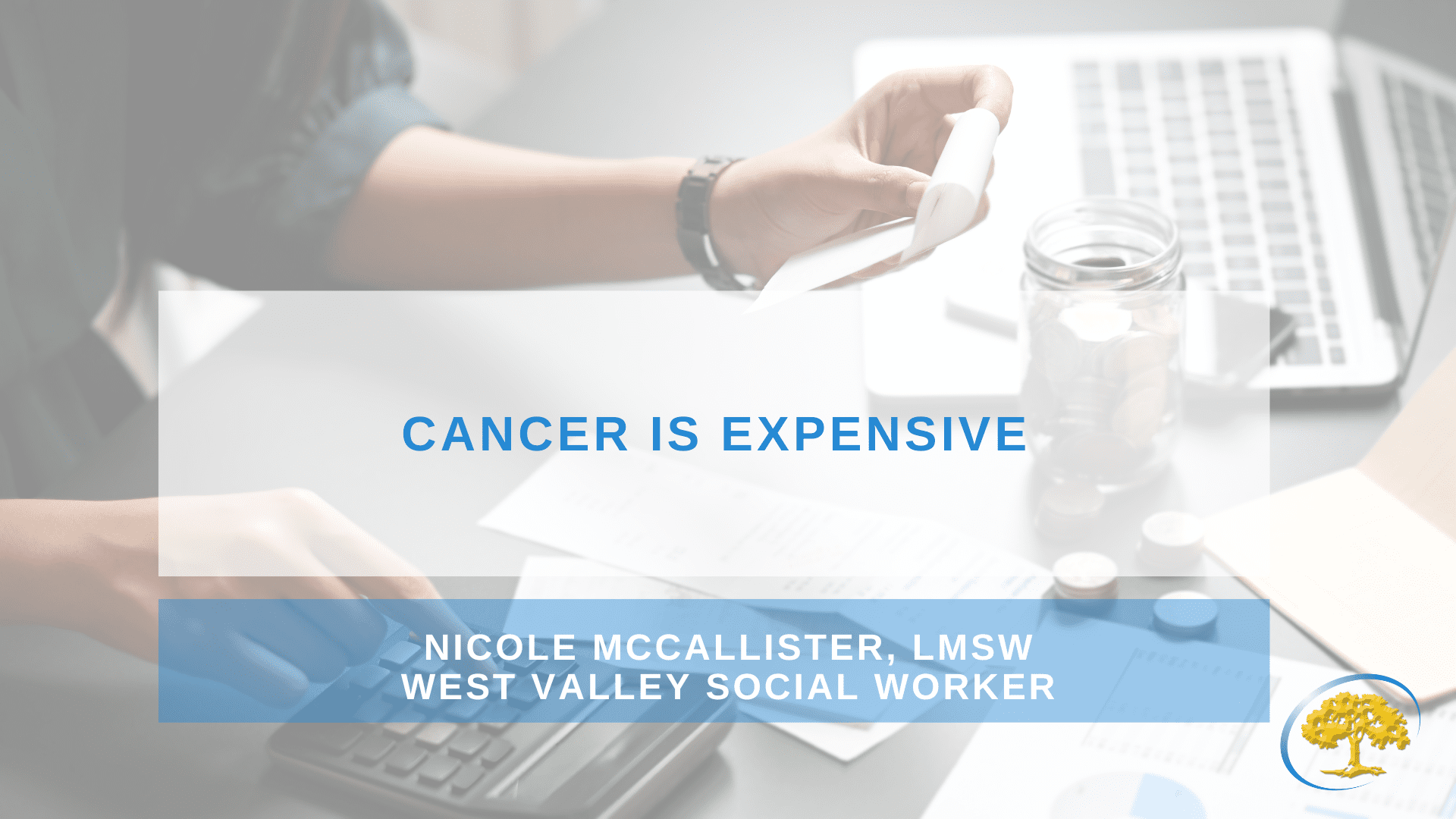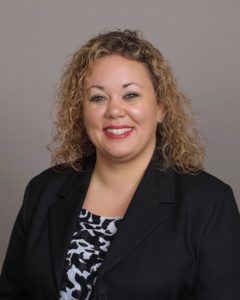
Posted 11 months ago
Cancer is Expensive
Cancer is a very expensive illness. Even if you have health care insurance, this does not mean you will be able to afford the care and treatment you need without assistance. We want to share some information with you to hopefully reduce financial stress and help you find relief.
The Journal of Clinical Oncology reports cancer survivors spend more out of pocket (OOP) for medical care than their counterparts without a cancer history, a pattern that persists many years after cancer diagnosis and completion of treatment. This fact is common sense. Cancer patients are paying for treatments, continuous lab work, scans, office visits and prescription medications, most of which a person without cancer would not encounter.
This excess financial burden for patients with cancer, survivors, and their families has continued to grow as the costs of cancer care have increased dramatically in the past decades. A significant portion of new cancer drugs are costing $100,000 or higher annually. Furthermore, health insurers are increasingly shifting costs of care to patients through higher deductibles, copayments, and coinsurance.
Compounding matters is the negative impact of cancer has on maintain current employment status, resulting in forgone income and loss of employment-sponsored health insurance for some patients.
Consequently, patients with cancer and their families experience financial hardship associated with cancer, including problems paying medical bills, distress and worry about medical bills, and delaying or forgoing of medical care because of costs.
Out-of-pocket expenses for people being treated for cancer fall into three general categories:
– Direct medical costs.Doctors’ fees, hospital charges and medication costs may or may not be covered, even if you have health insurance. For example, many people find that their insurance provides only limited coverage for prescription drugs.
– Related costs. The costs of home care, transportation to and from treatment, over-the-counter medications and medical supplies can add up, and are often not covered by health insurance.
– Daily living expenses. Costs for food, childcare, housing, utilities, and other daily living expenses may suddenly become difficult to pay if a person with cancer stops working
The hard part of this blog is over. Time to find out how to manage this financial strain and get the support you need.
Here is some advice and tips on how to improve your financial situation to reduce financial stress for yourself and your family.
Creating a Budget For Yourself
– Take out a pen and notepad, then grab a calculator. Start by listing out any income that you receive. Consider how often you are getting paid. Is it once a month? Twice a month? Or are you being paid on a weekly basis. This will give you the total amount of money you have each money to spend and work with. This is the most important part of your budget.
– Then review your expenses. What are the staple bills that you must pay each month? For most people it’s housing, whether a rent or mortgage payment, car payment, insurance, credit card bills, utilities, and phone bills.
– Then look at the things you choose to pay for. This may include cable bills, Netflix, gym memberships or Starbucks.
– Add up all your expenses and subtract them from your total income. What is left is your extra funds. This should be used to pay down credit cards as paying the minimum balance does not often make a dent in the overall balance over time. Or you can use this for savings. If you are struggling to have money left over, print out your last month’s bank statement for your credit or debit cards. Highlight “needs” in blue and “wants” in pink. Take time to really think about each item when deciding what category it falls into.
– You may want to try a simple budgeting plan. A very popular plan is the 50/30/20 budgetto maximize your money. In it, you spend roughly 50% of your after-tax dollars on necessities, no more than 30% on wants, and at least 20% on savings and debt repayment.
– Focus on reducing your wants. Maybe it is time to eliminate your subscriptions for movie channels such as Netflix or Hulu. Changes can be temporary, and you can always resubscribe when your financial situation is more conducive.
Get to Know Your Insurance Plan Inside and Out
Your insurance policy outlines your benefits and any coverage limits. You may also be given a summary plan description which will outline the provisions of your policy in clear terms. If you don’t receive a summary plan description, you can request it from your insurance provider.
Here are some of the most important policy provisions for you to understand. If you do not understand any part of your policy, ask questions of your insurance provider. They are working for you.
– The medical procedures and expenses that are covered
– Your deductible amount
– The services that require a co-payment and/or the payment of co-insurance
– The plan’s pre-authorization requirements
– The company’s appeal process should a claim be denied
– How to find in-network health care providers
– The fertility preservation options available within your plan
– Coverage provided related to travel and lodging
– Coverage provided for the costs of a clinical trial
If You Do Not Have Health Insurance, There Are Still Options
– Your place of employment. Talk to a representative from your human resources department about employer-offered health benefits that you may be eligible for.
– Your spouse or domestic partner’s plan. If your spouse or domestic partner has a job that offers health insurance, find out if you’re eligible to be covered.
– COBRA. If you have left a job recently and were covered by an employer’s health insurance, you may be able to continue your coverage under COBRA (the Consolidated Omnibus Budget Reconciliation Act). This law requires employers to make health insurance coverage available through their plan to former employees for a minimum of 18 months after employment has ended. Beneficiaries are required to pay the premiums plus an additional administrative fee.
– Purchase it on your own. You can contact an insurance broker or visit www.healthcare.gov to find the Health Insurance Marketplace in your state.
– Medicare and Medicaid. Medicare is a government-provided health care plan for people 65 and older and those who have been receiving Social Security Disability Insurance benefits for a minimum period of two years. Medicaid provides health care services for people whose income falls under a certain level.
– Social Security. Social Security Disability benefits or Supplemental Security Income may be able to help with the cost of health insurance. For eligibility requirements, call 800-772-1213 or visit www.socialsecurity.gov/disability/. It is important to know that you must be on Social Security Disability for two years before you are eligible for insurance benefits.
Community Financial Assistance
Low-income households, elderly and disabled may have access to more financial assistance through government funded programs
There are numerous nonprofit programs across the country that provide financial assistance and support to cancer patients. However, these programs have their own eligibility rules and may cover only certain cancers.
One resource we can highly recommend is by dialing 211. It’s a simple three digit phone number that’s easy to remember. This takes you directly to your local community resource hotline, no matter where you live. Here you can ask about food banks, emergency rental assistance, utility assistance programs as well as an abundance of other needs.
Our Social Workers are here to help you as well. We work very closely with our Benefits Coordinators and other financial specialists.
To reach a Social Worker at Ironwood, you can email us at socialwork@ironwoodcrc.com or call our team coordinator at 480-314-6670
Nicole McCallister, LMSW
Nicole McCallister is a Licensed Master Social Worker. Nicole received her Master’s in Social Work from Arizona State University in August 2017. She received her Bachelor’s in Criminal Justice Studies in April 2003 from Grand Valley State University in Grand Rapids, MI.
Nicole has spent the last 15 years working with children and families in the child welfare system of Arizona. She completed a social work internship with Ironwood under the supervision of Kelly Huey from August 2016 through May 2017.
Nicole has volunteered with Ironwood’s breast cancer support group in Scottsdale after her internship was complete. Nicole is looking forward to working with cancer patients and their families in hopes of supporting the positive change to those in need.


